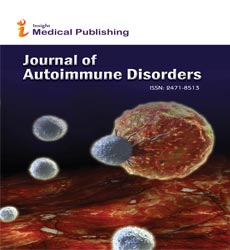Abstract
Hashimoto Encephalopathy: Encephalitis versus Vasculopathy and the Impact of Concussion
Patients with Hashimoto encephalitis may present with seizures, stroke-like episodes, transient focal and global neurological deficits, and a variety of neuropsychiatric disturbances. The encephalopathy evolves with elevated anti-thyroid peroxidase antibodies, independent of hormonal thyroid function. A vasculitic basis is considered in cases that show inflammatory vasculopathy in brain biopsy and postmortem tissues. A relation to autoimmune encephalitis is supported by etiologic localization of the disturbance to vulnerable areas of the mesial temporal lobe and the association of potentially pathogenic antibodies. Both mechanisms presume disruption of the blood-brain barrier. We report a patient with Hashimoto encephalopathy in whom repeated concussions antedated onset of the disorder with overlapping areas of altered brain metabolism and vascular perfusion in the hippocampus, deemed to be most vulnerable in autoimmune encephalopathy and concussive brain injury.
Author(s):
David S Younger
Abstract | Full-Text | PDF
Share this

Google scholar citation report
Citations : 155
Journal of Autoimmune Disorders received 155 citations as per google scholar report
Abstracted/Indexed in
- Google Scholar
- Open J Gate
- China National Knowledge Infrastructure (CNKI)
- Directory of Research Journal Indexing (DRJI)
- WorldCat
- Geneva Foundation for Medical Education and Research
- Secret Search Engine Labs
Open Access Journals
- Aquaculture & Veterinary Science
- Chemistry & Chemical Sciences
- Clinical Sciences
- Engineering
- General Science
- Genetics & Molecular Biology
- Health Care & Nursing
- Immunology & Microbiology
- Materials Science
- Mathematics & Physics
- Medical Sciences
- Neurology & Psychiatry
- Oncology & Cancer Science
- Pharmaceutical Sciences


